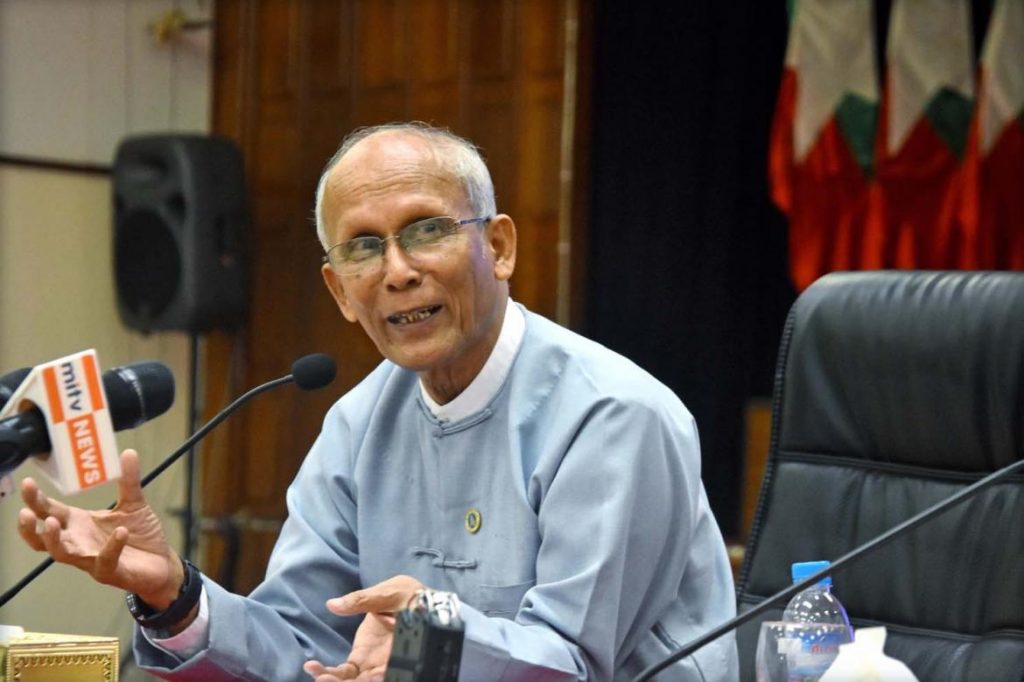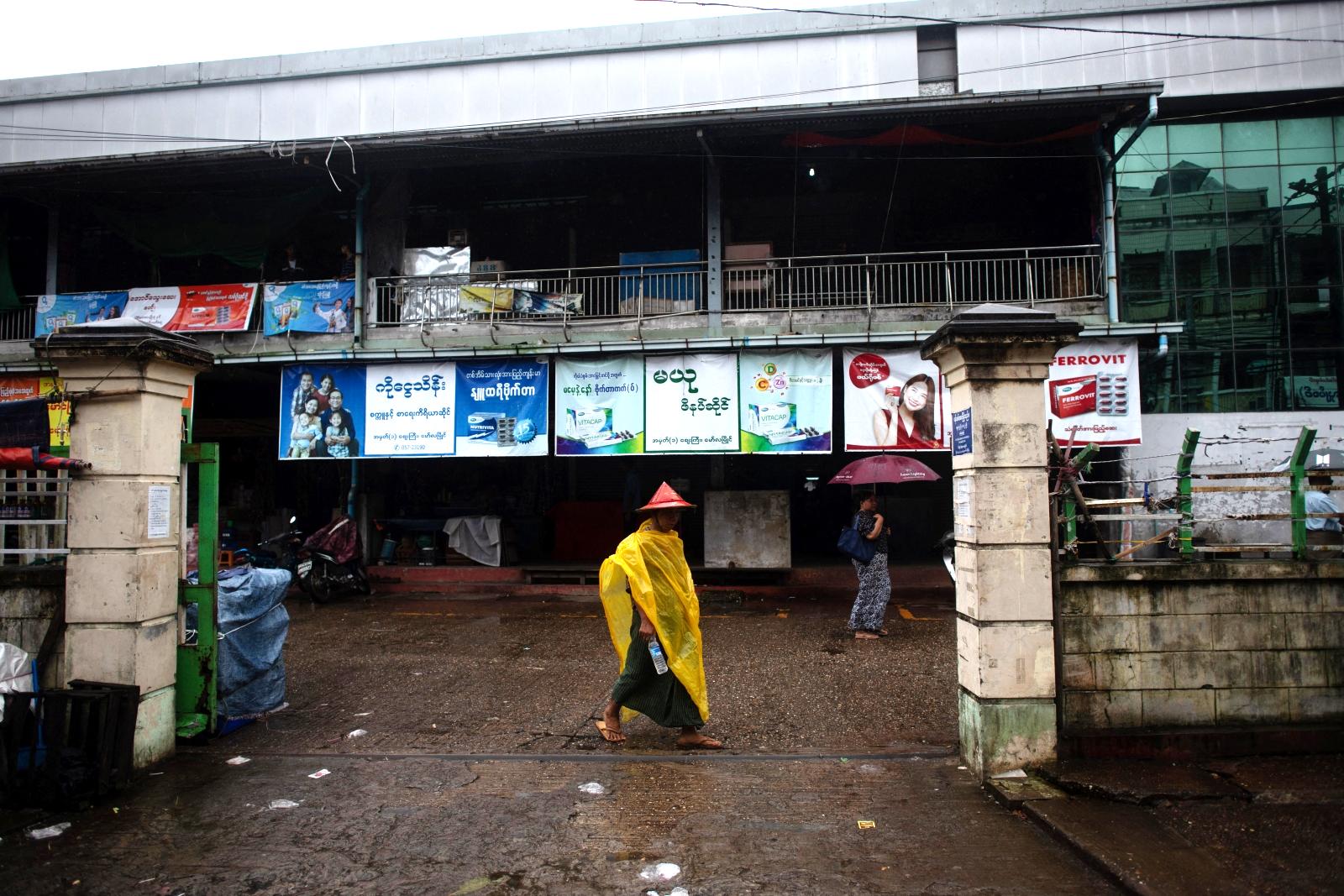Myanmar’s Central Bank says companies will have to raise corporate governance standards before they can benefit from its decision allowing them to borrow from foreign banks.
By KYAW LIN HTOON | FRONTIER
THE CENTRAL BANK of Myanmar has urged companies to raise their corporate governance standards so they can benefit from a recent rule change that enables them to borrow from foreign banks.
The rule change announced in a statement by CBM deputy governor U Soe Thein on November 8 is aimed at giving local companies greater access to finance.
It said foreign banks could “provide any financing and other banking services to local business entities, in the same manner as local banks”.
The change applies to the 13 foreign banks that have been licensed to open branches since 2015 but whose lending was previously restricted to foreign-owned companies and joint ventures.
Support more independent journalism like this. Sign up to be a Frontier member.
Since December 2017, foreign banks have also been permitted to provide export finance and related services to Myanmar-owned companies, but they remain barred from providing banking services to individual Myanmar citizens.
Analysts have welcomed the decision on lending to local companies but have cautioned that legal “grey areas” and limits on interest rates may affect the willingness of foreign banks to provide loans.
Soe Thein said it was essential that companies prepare properly before borrowing from foreign banks because their evaluations of would-be borrowers would be 10 times more rigorous than domestic banks.
“To be able to get the loans, the local companies must have exact business and budget plans and state how they would implement their projects. They will also need to be able to submit tax clearances,” Soe Thein told a media briefing at the CBM in Yangon on November 14. He said that even if a company could provide all the necessary documents, it would still be up to the foreign banks to assess whether to provide financing.
“We have allowed [foreign banks] to offer [loans] so that local companies can get the financing that they need but are presently unable to receive from the local banks and we also want this move to support economic growth,” he said.
He added that the Central Bank was planning to permit foreign banks to enter the retail banking sector, but such a change could be at least another two years away.
Industry sources say that, despite receiving the green light, it will take foreign banks several months of preparation before they are ready to provide loans and other services.
U Kyaw Soe Min, chief operations officer at AYA Bank, predicted that at least six months of preparation would be needed.
He said it would also take time before Myanmar companies, most of which are family-run, could meet the eligibility requirements for borrowing.
“To deal with the foreign banks they will need to adhere to international standards of corporate governance,” he told Frontier.
The business community has been generally welcoming of the CBM’s decision.
“It’s a good sign for local businesses,” said U Thet Lin, managing director of TZTM Construction Co. “It will inject capital into the economy and businesses will be able to grow faster.”
He echoed Soe Thein in emphasising the importance of companies ensuring that loan applications met the standards required by the foreign banks.
Foreign banks have already been lending to companies through their domestic counterparts, and two Myanmar bankers have suggested that the rule change is unlikely to result in a significant increase in lending.
They said foreign banks have also been lending to Myanmar companies via offshore-registered entities and speculated that these loans may now move onshore.
The CBM said foreign banks would have to follow the same regulations as domestic banks when issuing kyat-denominated loans, effectively limiting them to an interest rate of 13 percent. However, it said they would be able to set their own rates for foreign currency loans.
Analysts said the fixed interest rates would likely be an obstacle to further growth in foreign loans to local companies, and would effectively prohibit lending to those areas of the economy most in need of finance and limit capital access to the largest companies. Access is only likely to improve if the CBM proceeds with its plan to introduce a flexible lending rate policy based on risk exposure.
Unsurprisingly, the representative offices of the foreign banks said they welcomed the rule change.
Daw Nang Wut Yi, operation officer at Bangkok Bank Public Co Ltd, said it would be months before the foreign banks were ready to consider lending to local companies. It was not possible for Bangkok Bank to specify a starting date, she said.
Lawyers said new financing by foreign banks could hinge on the resolution of legal questions around the creation and execution of securities to secure such financing.
The issue was addressed in a November 12 client note by legal, tax and investment consultants DFDL Myanmar. It said the new Myanmar Companies Law allows for the creation of securities and their registration as an exception to the Transfer of Immovable Property (Restrictions) Act of 1987, but said that doubts persist around a provision in the older law that restricts the transfer of immovable property to a foreign-owned company.
The note said that although foreign lenders in practice employ the services of local banks to act as security trustees, the model has not yet been tested before a court of law. The Office of the Registration of Deeds has also been “markedly unwilling” to register a security over immovable property created in favour of foreign lenders, it said.
However, Lincoln Legal Services Myanmar Co Ltd was upbeat in an email to its subscribers, calling the change “a major market access improvement” that would give businesses “better access to financing and – possibly and hopefully – better banking services in general”.
– Additional reporting by Clare Hammond







